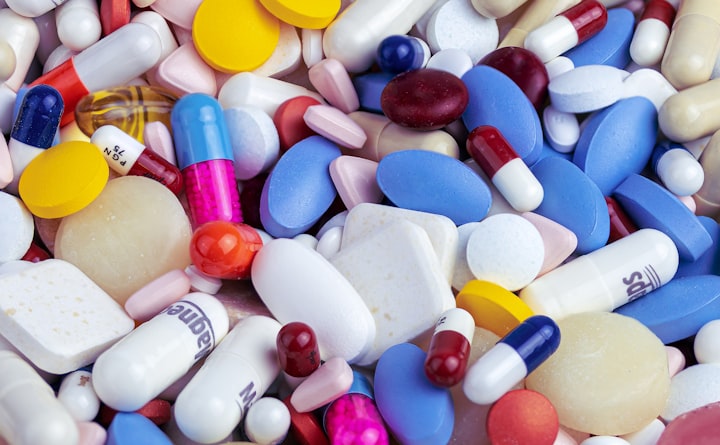Alcohol and Drug Treatment
1. According to the National Institute on Drug Abuse, substance abuse disorders cost the U.S. economy $467 billion each year. 2. alcohol and drug addiction is a serious problem that often leads to other health issues 3. effective treatment for alcohol and drug addiction is available and can help those struggling to recover 4. there are a variety of different treatment options available, so it’s important to find the right one for you 5. some common treatment methods include detoxification, counseling, and medication 6. it’s important to have a support system in place when undergoing treatment 7. relapse is common, but with treatment, it’s possible to achieve long-term sobriety

It’s no secret that addiction is a growing problem in the United States. According to the National Institute on Drug Abuse, about 21 million American adults suffer from a drug or alcohol abuse problem. Of those, only about 10% receive treatment.
There are many reasons why people don’t seek treatment for their addiction. For some, the cost of treatment is prohibitive. For others, the shame and stigma associated with addiction keep them from seeking help.
Whatever the reason, it’s important to understand that help is available and treatment can be effective. According to the National Institute on Drug Abuse, “treatment can help patients stop using drugs, avoid relapse, and achieve a productive life.”
1. According to the National Institute on Drug Abuse, substance abuse disorders cost the U.S. economy $467 billion each year.
Substance abuse disorders cost the US economy $467 billion each year, according to the National Institute on Drug Abuse. The human and economic toll of substance abuse is staggering, with addiction causing job loss, crime, and strained relationships. Treatment is essential to overcoming addiction, but it can be expensive.
There are many different types of treatment available, from inpatient rehab to outpatient programs. Treatment usually involves detoxification, counseling, and medication. Inpatient rehab is often the most effective form of treatment, but it is also the most expensive.
Outpatient programs are a less expensive alternative to inpatient rehab, but they are not as effective. Treatment should be customized to the individual, taking into account the severity of the addiction and the person's unique circumstances.
Substance abuse is a complex problem, and there is no one-size-fits-all solution. Treatment must be tailored to the individual and their situation. With the right treatment, people can overcome addiction and lead happy, healthy, and productive lives.
2. alcohol and drug addiction is a serious problem that often leads to other health issues
Addiction to alcohol or drugs is a serious problem that often leads to other health issues. When someone is addicted to alcohol or drugs, they are not able to control their use of the substance and they continue to use it even though it is causing problems in their life. addiction can cause physical and mental health problems, and it can also lead to social and financial problems.
addiction is a chronic, relapsing disease, which means that it is not easy to quit and people often relapse. addiction is a disease that affects the brain and changes the way that it works. It is important to remember that addiction is a disease, and not a choice or a moral failing. There are many effective treatments for addiction, and people can and do recover from addiction.
If you or someone you know is struggling with addiction, it is important to get help. There are many resources available to help people who are struggling with addiction.
3. effective treatment for alcohol and drug addiction is available and can help those struggling to recover
It is estimated that 20.6 million adults in America suffer from alcohol or drug addiction. But despite these staggering numbers, effective treatment is available and can help those struggling to recover.
There are many different types of treatment available for alcohol and drug addiction, and the best type of treatment will vary depending on the individual. However, there are some common elements of effective treatment that can be beneficial for anyone struggling with addiction.
One of the most important aspects of treatment is detoxification, which is the process of ridding the body of toxins. This can be done through various means, such as taking medications, drinking lots of fluids, or sweating it out through exercise.
Detoxification is important because it helps to break the physical dependence on alcohol or drugs. But it is only the first step in treatment, and it is not enough on its own to ensure long-term recovery.
After detox, the next step is usually therapy. This can be in the form of one-on-one counseling, group therapy, or family therapy. Therapy is important because it helps to address the underlying causes of addiction, and it gives people the tools they need to cope with triggers and cravings.
In addition to therapy, other types of treatment can be helpful, such as 12-step programs, educational classes, and self-help groups. These types of programs can provide support and community, which are essential for recovery.
Treatment for alcohol and drug addiction is not a one-size-fits-all solution, but there are effective treatments available. If you are struggling with addiction, reach out for help. There is no shame in seeking treatment, and it could be the best decision you ever make.
4. there are a variety of different treatment options available, so it’s important to find the right one for you
There are a variety of treatment options available for those struggling with alcohol and drug addiction. The most important thing is to find the right treatment option for you. treatment options vary depending on the severity of your addiction, your motivation to recover, your financial resources, and other factors.
One common treatment option is 12-step programs such as Alcoholics Anonymous (AA). AA is a fellowship of men and women who share their experience, strength, and hope with each other in order to recover from alcoholism. AA meetings are available in most communities and provide support and guidance for those in recovery.
Another treatment option is outpatient treatment. Outpatient treatment is a less intensive form of treatment than inpatient treatment, which requires you to live at the treatment facility. Outpatient treatment allows you to continue to live at home and work or go to school while attending treatment. This type of treatment typically includes individual and group therapy, as well as other support activities.
Inpatient treatment is a more intensive form of treatment than outpatient treatment. Inpatient treatment requires you to live at the treatment facility for the duration of treatment. This type of treatment is typically best for those with severe addiction issues. Inpatient treatment typically includes individual and group therapy, as well as other support activities.
Detoxification is often the first step in addiction treatment. Detoxification is the process of allowing your body to rid itself of the drugs or alcohol you are addicted to. Detoxification can be done on an inpatient or outpatient basis. Detoxification is followed by rehabilitation, which is the process of learning to live without drugs or alcohol.
Finding the right treatment option for you is essential to your recovery. There are many resources available to help you find the right treatment option. Speak with your doctor, a mental health professional, or a rehab facility to learn more about the different treatment options available.
5. some common treatment methods include detoxification, counseling, and medication
Detoxification is often the first step in alcohol and drug treatment. This process can help to clear the body of harmful substances and prepare the person for further treatment. Counseling can provide support and guidance for those struggling with addiction, helping them to identify triggers and cope with difficult emotions. Medication can also be used to manage withdrawal symptoms and cravings, making it easier for people to stick to their treatment plan.
6. it’s important to have a support system in place when undergoing treatment
It’s important to have a support system in place when undergoing treatment for alcohol or drug addiction. Family and friends can play a big role in the recovery process, providing emotional and practical support.
In addition to family and friends, there are many professional organizations that can help provide support and resources during treatment and recovery. These organizations can offer guidance, advice, and peer support. Some examples of these organizations include Alcoholics Anonymous, Narcotics Anonymous, and Al-Anon.
Support groups can be a great way to connect with others who are going through similar experiences. These groups provide a space to share openly and honestly about the challenges and successes of treatment and recovery. Participation in a support group can help to reduce feelings of isolation and loneliness.
When choosing a treatment program, it’s important to find one that offers a comprehensive support system. This may include individual and group therapy, family counseling, and aftercare planning. The goal of treatment is to help you develop the skills and resources you need to maintain sobriety and live a healthy, fulfilling life.
7. relapse is common, but with treatment, it’s possible to achieve long-term sobriety
Relapse is defined as a return to drug or alcohol use after a period of abstinence. It is common for people in recovery to experience one or more relapses, but this does not mean that treatment is not effective. In fact, relapse rates for all types of addiction are similar to those for other chronic illnesses, such as diabetes and hypertension.
With treatment, it is possible to achieve long-term sobriety. Treatment for relapse should focus on identifying the triggers that led to the relapse and on developing coping skills to deal with these triggers. It is also important to continue to participate in support groups and other recovery activities. People who have relapsed should not feel ashamed or embarrassed, and they should not give up on treatment. Recovery is a lifelong process, and relapse is just a part of that process.
According to the National Institute on Drug Abuse, research has shown that drug and alcohol treatment can be effective for people with substance use disorders. Treatment can help people stop using drugs and alcohol, stay in treatment, and avoid relapse.





Comments
There are no comments for this story
Be the first to respond and start the conversation.